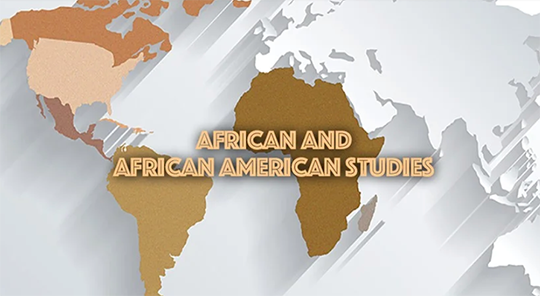
Rice University’s Center for African and African American Studies (CAAAS) is expanding its offerings and expertise with the appointments of Elizabeth Hordge-Freeman, Khadene Harris and Ayodeji Olugbuyiro.
“These scholars contribute to CAAAS’s position as an emerging center for the study of Africa and the African diaspora,” said CAAAS director Sherwin Bryant . “Their combined expertise in sociology, anthropology and Black cultural studies addressing Brazil, Dominica, Jamaica and Lusophone Africa will provide students with a rich and multifaceted understanding of race, ethnicity and social justice histories and practice.”
Hordge-Freeman joins CAAAS and Rice’s Department of Sociology as an associate professor. She comes from the University of South Florida (USF), where she served as the College of Arts and Sciences Racial Justice Initiative Chair.
“I was immediately impressed by the caliber of Rice students and the quality and breadth of faculty research in sociology and CAAAS, which I believe offers the ideal context for my research related to racial justice and social inequality,” Hordge-Freeman said. “The recent launch of the Center for African and African American Studies alongside news of the new Center for Latin American and Latinx Studies are indicative to me that Rice is redoubling its efforts to advance transformative research that is responsive to contemporary issues. I was also drawn to Rice’s commitment to grappling with its complex racial history and its robust institutional efforts to expand accessibility for students from diverse and disadvantaged backgrounds.”
Her research focuses on race, ethnicity and social inequality with a particular interest in Black families in Brazil. Her award-winning book, “The Color of Love: Racial Features, Stigma and Socialization in Black Brazilian Families,” examines how physical appearance shapes social interactions within Black communities. Her most recent book, “Second-Class Daughters: Black Brazilian Women and Informal Adoption as Modern Slavery,” explores the experiences of Black women navigating exploitative adoption practices.
“I’m looking forward to engaging Rice students in new courses and co-curricular experiences that bring together my interest in sociology, the African diaspora and community engagement,” Hordge-Freeman said. “My colleagues in sociology and CAAAS are engaged in exciting research, and I’ve already begun conversations about future research collaborations with them. Given Rice’s expanding global footprint, I look forward to collaborating to expand opportunities for students and faculty in Brazil and Latin America. Beyond Rice, I’m excited about exploring the city of Houston both because of its rich local context and its reputation for having the best restaurants, museums and cultural diversity in the country.”
In addition to receiving numerous teaching awards, including the USF Outstanding Community-Engaged Teaching Award and the USF Outstanding Undergraduate Teaching Award, Hordge-Freeman has also played a key role in developing service-learning programs that immerse students in Brazilian culture and the realities faced by Afro-Brazilians. Her administrative experience includes serving as senior adviser to the president and provost for diversity and inclusion at USF. Hordge-Freeman’s work beyond traditional scholarship includes co-founding the Imagine Blackness AI Project, which uses artificial intelligence to explore Afrofuturism and spark conversations about race and technology.
A historical archaeologist whose research centers on the African diaspora in the Caribbean, Harris’ current work focuses on plantation societies in Dominica and St. Vincent and the Grenadines, examining how enslaved people built lives and communities under oppressive conditions. She is particularly interested in the economic networks that developed among the laboring class.
“I was impressed with the university’s commitment to establishing and continuing to support CAAAS and Rice’s reputation for innovative student and faculty research,” Harris said. “It was important to me to be in a place where my research endeavors would be supported and I could train a new generation of historical archaeologists. Rice is definitely such a place.”
Prior to joining Rice’s Department of Anthropology as an assistant professor, Harris held a postdoctoral fellowship with the Digital Archaeological Archive of Comparative Slavery, a leading resource for scholars studying slavery across the Atlantic world. Her expertise in historical archaeology and the material culture of the Caribbean will provide valuable insights into the lives of enslaved people and their descendants.
“As an archaeologist, working in groups comes naturally to me, and I can’t wait to learn more from my colleagues in such a supportive environment,” Harris said, adding that she’s looking forward to being involved with the CAAAS Junior Scholars Workshop and enjoying Rice’s beautiful campus.
Olugbuyiro comes to CAAAS as the inaugural Anthony B. Pinn Postdoctoral Associate. His research explores the formation of Black identities within the Luso-Afro-Brazilian Atlantic, a region encompassing countries like Brazil, Portugal, Angola and Mozambique. He also studies Black experiences in the Anglophone world with a focus on Nigeria and the United States.
“I was drawn to Rice by the opportunity to be part of a unique center that is dedicated to excellence in the research and teaching of African and African American studies,” Olugbuyiro said. “I am also thrilled at the prospect of joining a cohort of humanities postdoctoral scholars at Rice University and enjoying its beautiful campus.”
Olugbuyiro’s work delves into how Black cultural productions, such as literature, shape identity and resistance in a postcolonial context. One of his recent publications, “An Enduring Paradigm of Resistance: The Resurgence of Negritude in Contemporary Black Portuguese Poetry,” examines how contemporary Black poets in Portugal are drawing on a historical movement to express their identities and challenge ongoing racial inequalities. Olugbuyiro’s work will contribute to a deeper understanding of Black identity across geographical and linguistic boundaries.
Learn more about offerings and events at CAAAS here.

